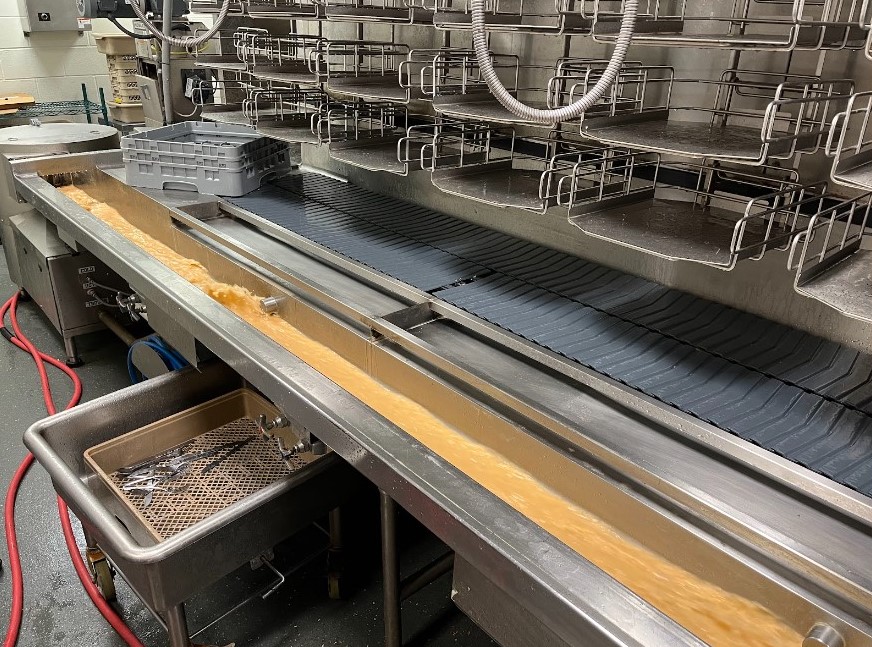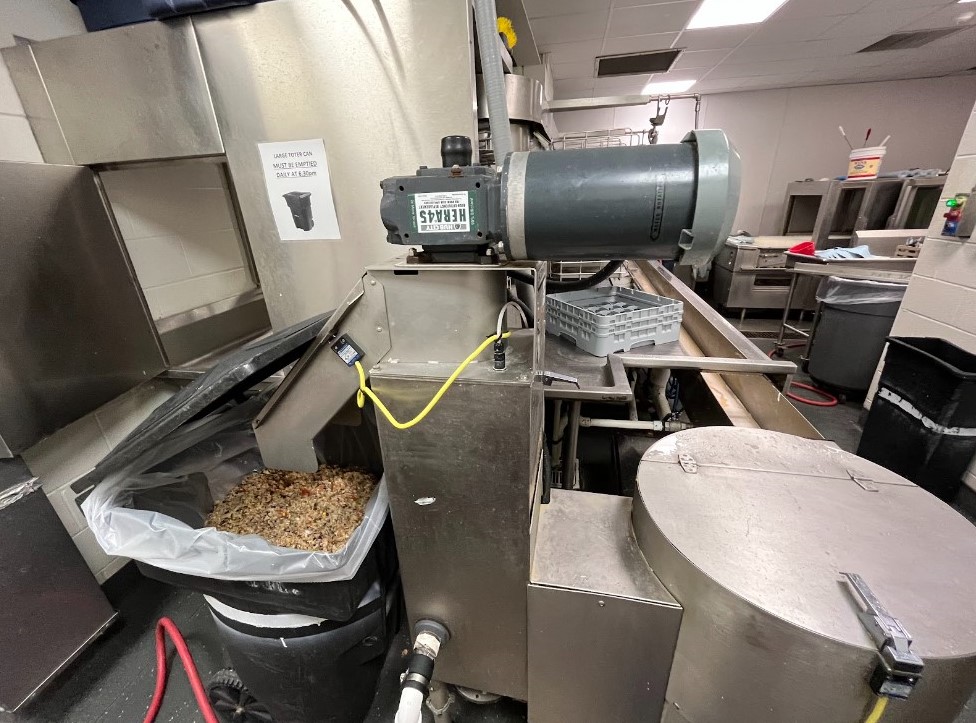By Brandon Fey, Staff Writer
As the primary dining location at Gettysburg College, Servo bears the daunting task of providing the campus with three meals a day while offering a variety of options. In addition to this, it is tasked with constant catering requests. Despite the immense scale of the job Servo must undertake each day, they manage to do so while running an environmentally sustainable operation. Gettysburg College Dining Services has been working with the Campus Sustainability Committee to inventively implement environmentally conscious practices at every level of Servo.
This process begins with the selection of food distributors. As often as possible, Dining Services uses foods that are locally grown and processed. In addition to their freshness and sustainability, the use of local food supports businesses in the surrounding area. This includes beef from Stoneridge Manor and eggs from Weikert’s Egg Farm, which are both located in Gettysburg. Dairy products are purchased from Lebanon, PA, and chicken and pork are from Mount Joy, PA. The majority of fruit and vegetables are purchased from local farms, though what cannot be obtained locally is sourced from a produce distributor that purchases much of its products within 100 miles.

Maps of Servo’s food suppliers, all within a relatively close distance. (Photo Brandon Fey/The Gettysburgian)
Gettysburg Dining Services understands the tremendous amount of food that needlessly goes to waste in many restaurants across the nation. In an effort to combat this issue, Servo donates all of its pre-consumer leftover food to the local Campus Kitchen, which is part of a nonprofit group that makes donated food available to those in need.
The recycling effort also extends to water and food waste. Servo employs a Waste Pro Pulper System in its dish room that enables dining staff to recycle cleaning water and process food waste.
This process begins when the device’s hopper is filled each morning with water that flows throughout the entire breakfast service. The system is then drained, cleaned and refilled for lunch and dinner. This differs from most dishwashing systems that run water constantly throughout the day. The Waste Pro Pulper System recycles 95% of the water used during operation, decreasing Servo’s total water consumption by 66%. In addition to cleaning dishes, the system also reduces the volume of food waste by a ratio of 8 to 1, converting the waste into a reusable pulp.

Recycled water flowing from the Waste Pro Pulper System beneath the rotating dish rack. (Photo Brandon Fey/The Gettysburgian)
Every day, millions of tons of food waste is thrown away across the country. Food waste currently makes up about 40% of the content in U.S. landfills. Servo works to reduce this amount using an Ecovim system. This process involves dehydration, which, in addition to creating biomass, provides water that can be reused for other purposes. The Ecovim machine has reduced the volume of processed pulp by 90%, leaving the remaining 10% as biomass. This process takes about 12 hours to complete per cycle, allowing Servo to reduce 1,400 pounds of pulp into approximately 300 pounds of biomass in one week.
Biomass is a highly versatile resource that can be used for animal feed, biofuel (as a less-destructive alternative to wood-burning) and most commonly, as a nutrient-rich fertilizer. Gettysburg Facilities Services transports the biomass to Dickinson College for use on its campus farm. Since its implementation in 2014, the Ecovim system has reduced Servo’s food waste by 85%. As a result of this, Servo prides itself in only having one trash dumpster for the entire building.

Pulp being collected in a bin from the Waste Pro Pulper System. (Photo Brandon Fey/The Gettysburgian)
In an effort to limit the further presence of harmful plastics in the environment, the Dining Center is furnished with environmentally conscious innovations. Among these include chairs made from recycled plastic bottles, Tork Intuition paper towel dispensers and Xpressnap napkin dispensers that deliver one napkin at a time.
Dining Services also seeks to partner with suppliers who are committed to addressing environmental issues. A prime example is Restaurant Technologies Inc. (RTI), which provides fry grease for both Servo and The Bullet Hole. In place of the previous system in which fry grease was delivered in plastic jugs cased in cardboard, RTI pumps the grease directly into the building. In addition to saving unnecessary labor, this solution eliminates the waste from approximately 640 plastic jugs annually.
Student Dining Board Manager, Joseph Wheeler is tasked with ensuring that Servo’s operation runs efficiently while maintaining its sustainable values. According to Wheeler, “Gettysburg College Dining Services believes that taking care of the environment is part of our stewardship and commitment to a sustainable future.”
Servo is a notable example of how sustainability can be proactively synthesized with efficiency and economic frugality. The progression toward a realistically sustainable future requires commitment, innovation and creativity. To achieve this goal, Servo remains willing to learn and be open to improvement.
